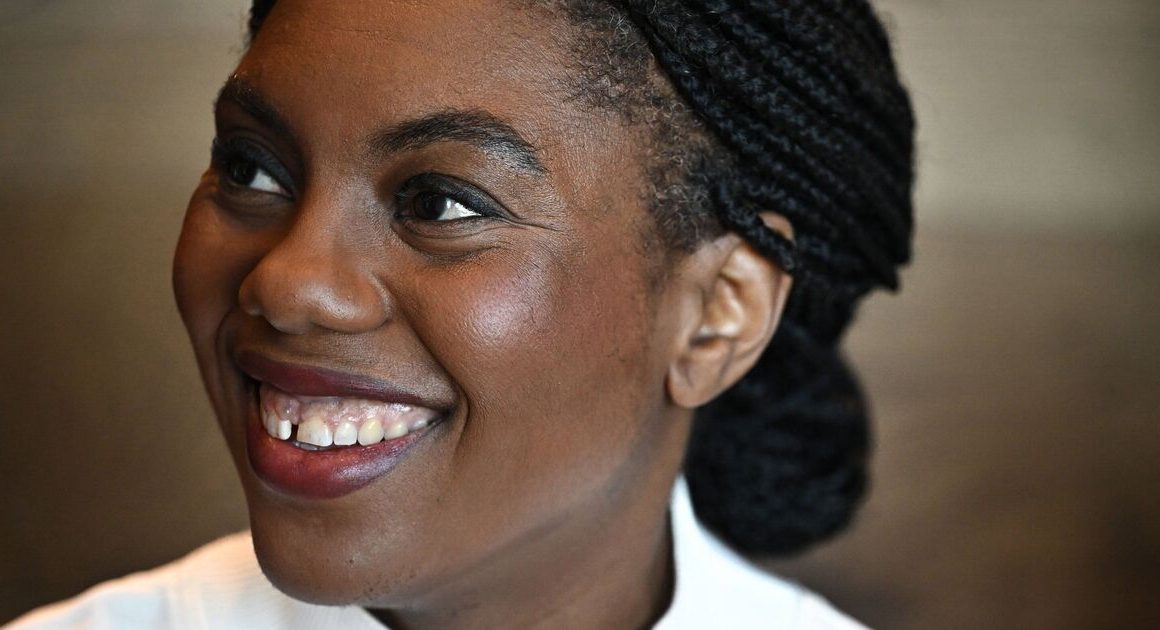WARNING: This story contains details of experiences at residential schools.
A former student of assimilationist federal Indian boarding schools in the U.S. says Friday’s presidential apology was long overdue.
“They should have done it years ago,” said Rosie Yellowhair, 74, a member of the Navajo Nation originally from Steamboat, Ariz..
“I’m glad he did that, and I hope there is programs for people that have been hurt from it.”
Yellowhair attended boarding schools from age four all the way through Grade 12, including the Steamboat, Keams Canyon and Phoenix boarding schools.
She recalled feeling lonely and trying to run away, being banned from speaking Navajo and suffering punishments that included having to scrub floors with a toothbrush, stand in the corner holding books and being physically hit in the ears.
The apology is a good first step but now there needs to be an effort to help people heal, said Yellowhair.
“I think it’s a start,” she said.
U.S. President Joe Biden formally apologized to Native Americans on Friday for the “sin” of the government-run system, which for decades forcibly separated children from their parents.
“It’s a sin on our soul,” Biden said in a visit to the Gila River Indian Community on the outskirts of Phoenix.
“Quite frankly, there’s no excuse that this apology took 50 years to make.”
Biden spoke of the abuses and deaths of Native American children that resulted from the U.S. government’s policies, noting that “while darkness can hide much, it erases nothing” and that great nations “must know the good, the bad, the truth of who we are.”
“I formally apologize as president of the United States of America for what we did,” Biden said.
“The federal Indian boarding school policy — the pain it has caused will only be a significant mark of shame, a blot on our record history. For too long, this all happened with virtually no public attention, not written about in our history books, not taught in our schools.”
At least 973 Native American children died in the boarding school system over a 150-year period that ended in 1969, according to an Interior Department investigation that called for a U.S. government apology earlier this year.
At least 18,000 children, some as young as four, were taken from their parents and forced to attend schools that sought to assimilate them.
U.S. President Joe Biden formally apologized on Friday to Indigenous people in the United States for the government’s role in the abuse and neglect of children sent to federal boarding schools in order to assimilate them into white society. Brian Bull, a member of the Nimiipu (Nez Percé) tribe, says Biden gave an ‘unflinching’ apology.
Cody Groat, an assistant professor at Western University in London, Ont., said U.S. presidential apologies are extremely rare, making this an important development in U.S. presidential history.
“The beginning of the apology was very effective and really did address the sincerity of the matter at hand,” said Groat.
“But I think towards the end of the apology, he began to ruminate a bit on his career, which almost diluted the apology to some extent.”
Groat, a member of Six Nations of the Grand River whose grandparents were forced to attend the Mohawk Institute residential school in Brantford, Ont., said the U.S. and Canada have an interconnected history of Indigenous child removal policies.
Over more than a century in Canada, an estimated 150,000 Indigenous children attended residential schools, which were government-funded, church-run institutions similarly designed to strip children of their languages, cultures and family ties.
U.S.-Canada connections
In 2008, Prime Minister Stephen Harper apologized for the system and the harm it caused, acknowledging it was intended “to kill the Indian in the child.”
That phrase, or at least the sentiment, is believed to originate with American military captain Richard H. Pratt, founder and superintendent of the Carlisle Indian Industrial School in Pennsylvania.
“All the Indian there is in the race should be dead. Kill the Indian in him, and save the man,” Pratt said in a 1892 speech.
The clearest link between the two systems is seen in something called the Davin report, said Groat.
In the late 19th century, Prime Minister John A. Macdonald appointed politician and journalist Nicholas Flood Davin to investigate the U.S. system. In his 1879 report, Davin praised the American policy of “aggressive civilization” through which the U.S. removed children from their homes and placed them in boarding schools, recommending Canada establish a similar system.
“Those were some of the policies that they saw reflected through American schools that they could incorporate into a more comprehensive Canadian system,” said Groat.
Harper’s apology preceded the Truth and Reconciliation Commission, which concluded in 2015 that residential schools were a form of cultural genocide. Yellowhair said the U.S. should establish a similar commission.
Groat said the locating of potential unmarked burials at the former Kamloops residential school in British Columbia in 2021 played a role in encouraging a reckoning south of the border.
“I don’t think that the federal boarding school [investigation] would have happened without the significant international conversation regarding identification of unmarked graves,” he said.
A national Indian Residential School Crisis Line is available to provide support for survivors and those affected. People can access emotional and crisis referral services by calling the 24-hour service at 1-866-925-4419.
Mental health counselling and crisis support are also available 24 hours a day, seven days a week through the Hope for Wellness hotline at 1-855-242-3310 or by online chat.












